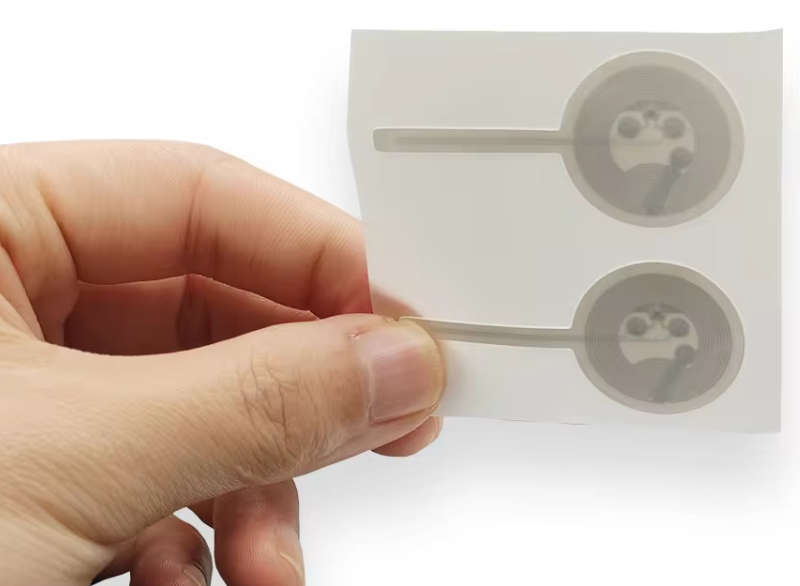
Advanced Tamper-Proof NFC Stickers: NTAG 424 DNA by NXP
The NTAG 424 DNA is a highly secure and robust NFC sticker designed to offer exceptional protection for assets and sensitive information.
RFID Linen Tags are advanced, robust, and flexible transponders designed from durable fabric, capable of withstanding heat, pressure, and stretching. These tags are ideal for effectively monitoring and tracing the lifecycle of textile assets, including workwear, uniforms, and flat linens. The RFID linen transponder is equipped with a unique ID, enabling touchless laundry management and enhancing digital transparency. By integrating with IT management systems, RFID facilities can seamlessly track textiles throughout the collection, laundering, and distribution processes.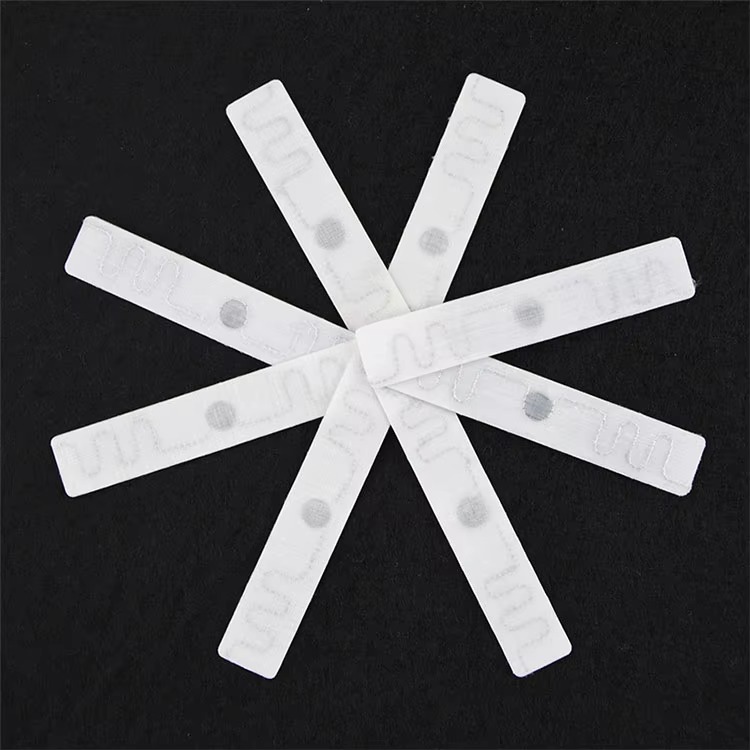
Durable and Flexible Composition
The RFID linen tag is crafted from a flexible, thin, and robust material that provides longevity and resilience, making it suitable for various textile applications.
Extended Read Range and Bulk Reading Capabilities
These tags offer an impressive read range and bulk reading performance, allowing for efficient tracking of multiple items simultaneously, which is crucial in fast-paced environments.
High-Performance Longevity
Engineered to endure extreme conditions, these linen transponders are guaranteed for at least 200 washing cycles, capable of surviving sterilization, dewatering, and exposure to heat under pressures of up to 60 bars and temperatures reaching 200°C (392°F).
Versatile Installation Options
Designed for versatility, these tags can be effortlessly attached to textiles through various methods, including stitching, heat sealing, pouching, or hanging, catering to different textile needs.
Custom Branding Options
Customers can benefit from on-demand services that offer laser logo engraving alongside EPC (Electronic Product Code) encoding embedded within the RFID chip, providing enhanced branding opportunities.
Environmentally Friendly Certification
Many of the pouches and materials used for RFID tags are certified by OEKO-TEX 100, ensuring compliance with environmental and safety standards, which is crucial in today’s eco-conscious market.
Advanced Data Programming Capabilities
The RFID linen tags support sophisticated data programming options, including EPC programming and the ability to lock or apply access passwords for enhanced security and privacy.
Robust Material Options
Clients have a choice of alternative woven materials varying from 30D to 100D, allowing for customization based on durability and specific applications.
Laser Printed Identification Features
Each RFID tag includes laser-printed identifiers such as EPC codes, 1D and 2D barcodes, QR codes, and DATA-Matrix codes, facilitating easy integration into existing inventory management systems.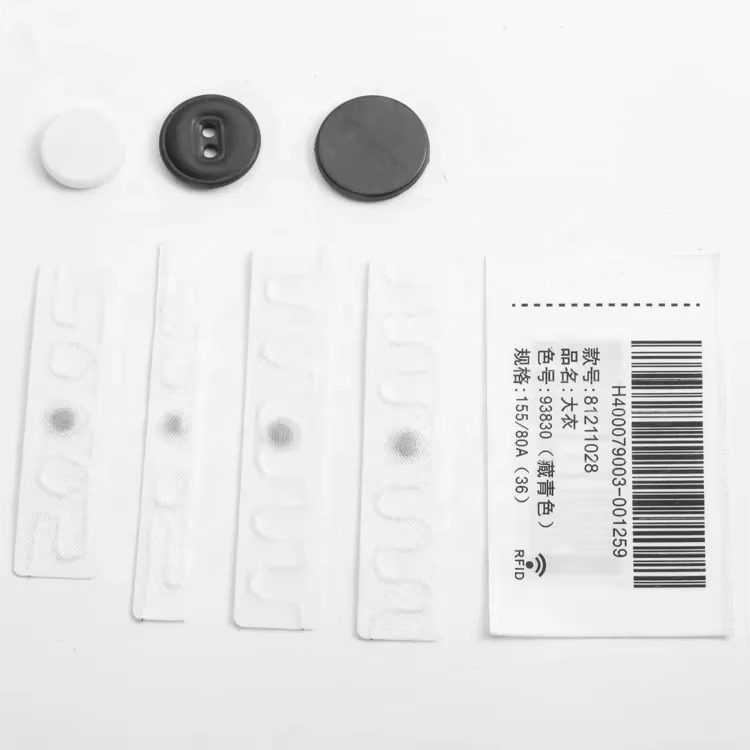
Different methods of installation ensure the RFID linen tags can be effectively and securely attached to various textiles, catering to a range of applications:
Stitch Tagging:
The tag can be securely stitched into the hem or designated area of the textile, ensuring it is positioned away from the folding lines to prevent damage and enhance visibility.
Heat Sealing:
For a seamless integration, the RFID tag can be directly heat-sealed onto the textile at a temperature of +200°C (392°F) for a duration of 12 to 14 seconds. This method guarantees a firm attachment, vital for rigorous laundering processes.
Pouch Attachment:
Similar to standard care labels, the RFID tags can be placed in protective pouches that are stitched securely into the textile. These pouches should be positioned away from any folding lines to extend the life of the tag.
In summary, RFID Linen Tags offer a state-of-the-art solution for effective tracking and management of textile assets. With their durable, flexible design and robust feature set, these tags provide organizations with the tools to optimize laundry management processes while ensuring digital transparency and reliability. Their versatility in installation method and data programming capabilities, coupled with environmentally friendly certifications, underscore their role as a critical asset in the textile industry. As businesses adopt RFID technology, these innovative tags are set to enhance operational efficiency and accuracy while supporting sustainability efforts within the sector.
Newest trends and common knowledge in RFID laundry tags.

The NTAG 424 DNA is a highly secure and robust NFC sticker designed to offer exceptional protection for assets and sensitive information.
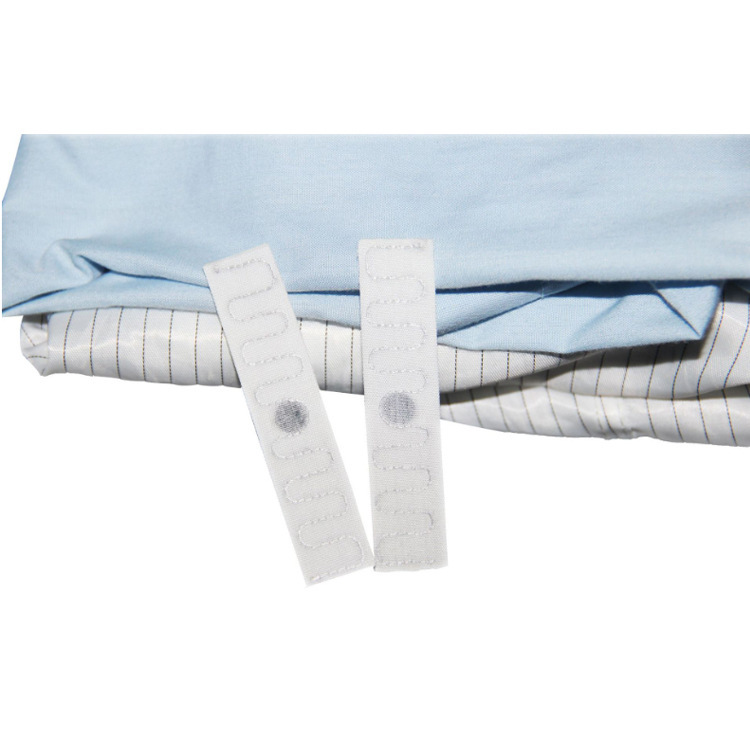
Embracing RFID laundry tags can revolutionize the way you manage linen in your laundry facility, whether it’s large-scale or smaller in size.
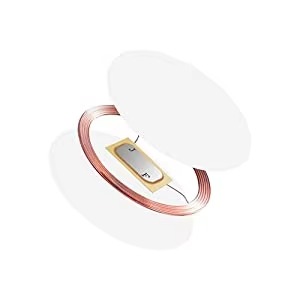
The 13.56 MHz RFID 1K token coin tags present an excellent solution for asset tracking, primarily due to straightforward installation, and robust durability.
Didn’t find what you want? Ask our manager for help!